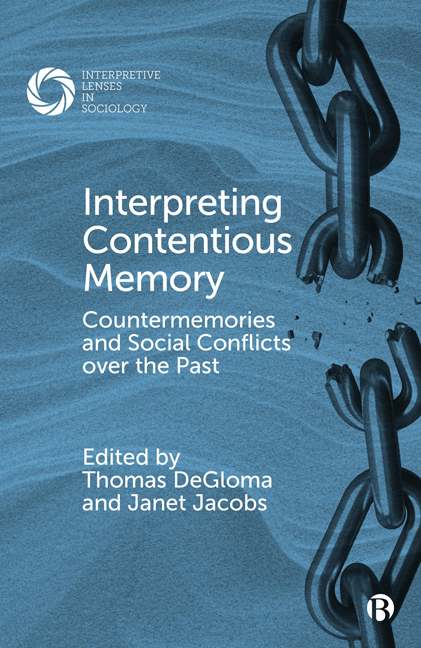Book contents
- Frontmatter
- Contents
- Series Editors’ Preface: Interpretive Lenses in Sociology – On the Multidimensional Foundations of Meaning in Social Life
- Notes on Contributors
- Acknowledgments
- 1 Introduction: Interpreting Contentious Memories and Conflicts over the Past
- PART I Interpreting Memories in the Social Dynamics of Contention
- PART II Racism, Exclusion, and Mnemonic Conflict
- PART III Genocide, Memory, and the Historicizing of Trauma
- Index
10 - Enlisting Lived Memory: From Traumatic Silence to Authentic Witnessing
Published online by Cambridge University Press: 20 January 2024
- Frontmatter
- Contents
- Series Editors’ Preface: Interpretive Lenses in Sociology – On the Multidimensional Foundations of Meaning in Social Life
- Notes on Contributors
- Acknowledgments
- 1 Introduction: Interpreting Contentious Memories and Conflicts over the Past
- PART I Interpreting Memories in the Social Dynamics of Contention
- PART II Racism, Exclusion, and Mnemonic Conflict
- PART III Genocide, Memory, and the Historicizing of Trauma
- Index
Summary
In one of his most seminal texts, Clifford Geertz depicts the ethnographer's search for a “thick description” – a description of lived experience “on the ground” that would capture otherwise tacit cultural meaning worlds as practiced and experienced in everyday lives (1973). Although subsequent readings of Geertz's theory have highlighted his focus on the interpretive lens of our interlocutors in the field, far less attention has been given to Geertz's assertion (long before anthropology's critical turn) that the ethnographer too must reflexively consider how scholarly discourse and personal ideological perspectives frame and therefore selectively interpret our ethnographic gaze and thick descriptions. In the spirit of Geertz's call for academic and personal self-reflexivity, in this chapter I explore the evolution of my own interpretive lens when doing field work and publishing about Holocaust memory and commemoration in Israel. I will consider the way my scholarship has been shaped by the following frames or lenses: (i) critical constructivism and hegemony theory, (ii) critical perspectives on trauma theory and potential pathologization of trauma victims and their descendants, and (iii) personal positioning as Holocaust descendant protective of survivor family “privacy,” silence, and authenticity. After a brief literature review I will present vignettes illustrating three different “turns” in my scholarship each followed by a discussion of personal positioning, scholarly framing, and my resultant moral dilemmas.
Epistemological frames of Holocaust memory
Critical memory scholars have proposed that all memory is social, partial, and strategically constructed and “put to work” to amass and sustain governmental and elite power and capital (Halbwachs, 1980; Schudson, 1997). Despite the ethically loaded nature of Holocaust and Genocide memory, Holocaust memory is no exception. Holocaust commemoration and public forms of memory work are selectively instrumentalized in national ceremonies, museum exhibits, and commemorative trips to Poland. In the service of Israeli statecraft, Holocaust memory deploys embedded value-laden collective Jewish-Israeli narratives of survival and national redemption, unifying an increasingly politically homogenous, critical, and individualistic society (Bauman, 1998; Handelman, 2004).
- Type
- Chapter
- Information
- Interpreting Contentious MemoryCountermemories and Social Conflicts over the Past, pp. 197 - 216Publisher: Bristol University PressPrint publication year: 2023

